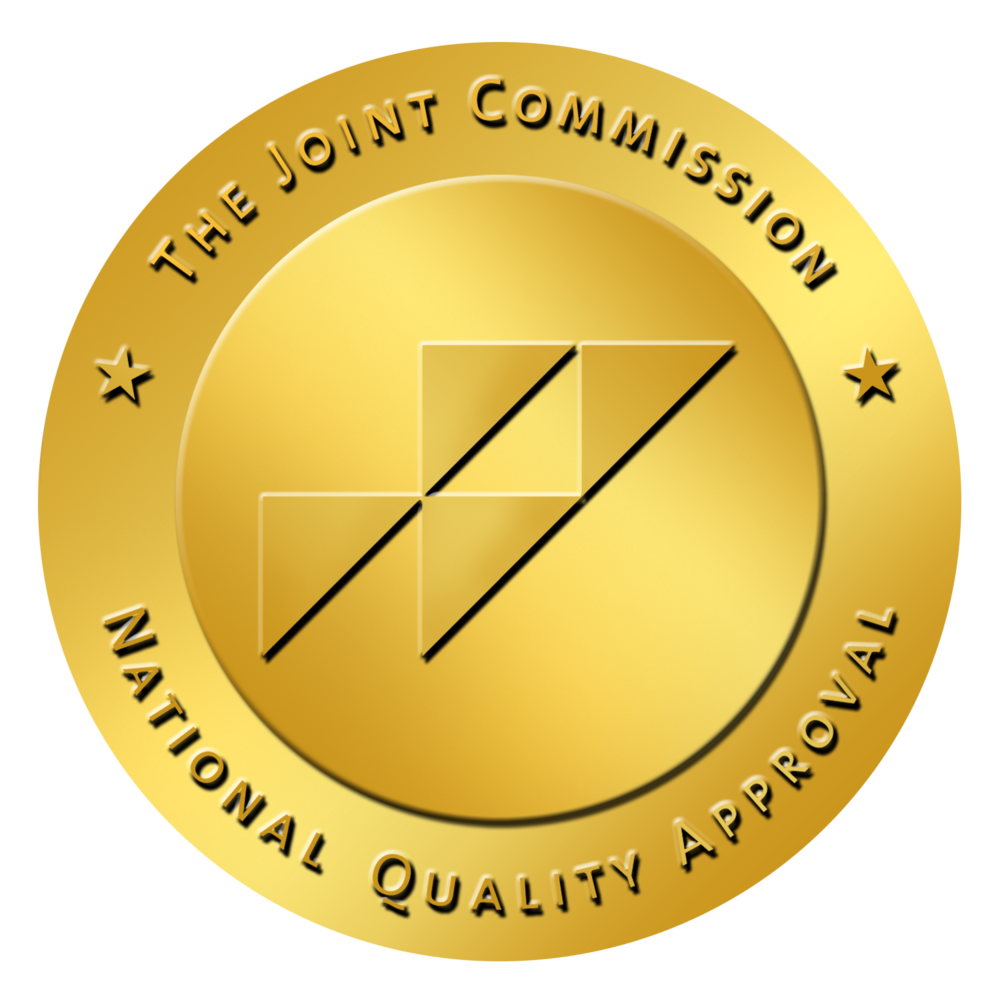Aliya Health Group offers comprehensive nationwide treatment for individuals struggling to cope with mental health disorders. As a dedicated mental health treatment provider, our treatment facilities in California, Colorado, Illinois, Nevada, and New Jersey are committed to offering comprehensive and compassionate care to individuals seeking residential and outpatient mental health treatment.
We understand the profound impact that mental health disorders can have on one’s life, and our specialized programs are designed to provide the support and treatment necessary for individuals to regain control of their well-being. Through our research-based approach and a team of highly skilled professionals, we strive to create a safe and nurturing environment that promotes healing and recovery.
What Are Mental Health Disorders?
A mental health disorder is a condition that affects a person’s thinking, feelings, behavior, or mood. These disorders can deeply impact day-to-day living and may harm the person’s ability to relate to others. Mental health disorders come in many different forms and can range from anxiety and depression to more severe conditions like schizophrenia or bipolar disorder.
It’s important to understand that mental health disorders are real, common, and treatable illnesses. They are not the result of personal weakness, lack of character, or poor upbringing. With appropriate care and treatment, people with mental health disorders can experience relief from their symptoms and lead full, rewarding lives.
Causes of Mental Health Disorders
Mental health problems can result from a variety of reasons, including biological, psychological, social, and environmental factors.
The most common causes of mental health disorders include:
- Genetics
- Family history
- Brain chemistry
- Chronic medical conditions
- Adverse childhood events (ACEs)
- Life stressors
- Trauma
- Hormone fluctuations
- Substance abuse
While these risk factors can contribute to the development of mental health disorders, they do not definitely cause disorders when people experience them. Mental health disorders are complex and multifaceted, and each individual’s experience is unique.
What Are the Different Types of Mental Health Disorders?
Mental Health Disorders encompass a wide range of different disorders that people can face. To help more accurately identify how to treat someone, a variety of categories have been made to define these disorders.
Common mental health disorders include:
- Mood disorders
- Anxiety disorders
- Trauma-related disorders
- Stress disorders
- Personality disorders
- Psychotic disorders
- Neurodevelopmental disorders
It is important to note that each individual may experience these disorders differently and may require different treatment approaches. Studies have found that while 23% of Americans experience any form of mental illness (AMI), closer to 6% experience a serious mental illness (SMI).
Mental Health Disorders We Treat
At Aliya Mental Health, we understand how hard it can be to find and begin treatment for a mental health disorder. This is why at our facilties we work to ensure the smoothest transition to a healing journey that we can offer. Our primary facilities, located nationwide, are designed for people with mild/moderate mental health symptoms, including high-level acuity such as DID and Schizophrenia.
Additionally, we both accommodate service animals and collaborate with local organizations to care for pets that may require attention during treatment. By focusing on long-term care options, we strive to avoid relapses and chronic hospitalization, rather than prioritizing quick stabilization. We are not able to assist with primary eating disorders, nor with actively homicidal/suicidal ideations.
The wide range of mental health disorders our facilities are equipped to treat includes:
Anxiety Disorders
Anxiety disorders can affect every level of a person’s life immensely, impacting thoughts, feelings, and behaviors. Originating in our earliest years as humans, anxiety served the function to keep us safe from danger. In our modern world, anxiety can disrupt this very same functioning in society and prevent us from doing certain things out of fear or worry. It is estimated that over 19% of Americans have an anxiety disorder.
Some anxiety disorders we treat in our mental health facility include:
- Generalized anxiety disorder
- Panic disorder
- Social anxiety disorder
- Obsessive-compulsive disorder (OCD)
Depressive Disorders
Depressive disorders encompass a range of mental health conditions characterized by significant and persistent disturbances in a person’s emotional state. These disorders span from chronic depressive states to periods of low moods that come and go. Similarly, depressive episodes can occur as a result of a specific external trigger, like the loss of a job, or a shift in brain chemicals following a manic episode.
Depressive disorders include, but are not limited to:
- Major depressive disorder, also known as clinical depression
- Persistent depressive disorder, also known as dysthymia
- Seasonal affective disorder (SAD)
- Premenstrual dysphoric disorder (PMDD)
- Peripartum depression (PPD), also known as postpartum depression
- Atypical depression
- Psychotic depression
Bipolar Disorders (BD)
Bipolar disorder is a complex and chronic mental health condition characterized by extreme shifts in mood, energy levels, and activity levels. These erratic mood swings alternate between states of mania (high energy and mood) and depression (low energy and mood), which is why the disorder was originally called manic depression.
In general, there are three types of bipolar disorder. Each of the three bipolar diagnoses describes the unique way in which a person experiences these patterns of highs and lows.
- Bipolar I disorder
- Bipolar II disorder
- Cyclothymic disorder
Trauma-Related Disorders
Trauma-related disorders are a category of mental health conditions that are triggered by experiencing or witnessing a traumatic event. These events can range from natural disasters and accidents to physical, emotional, or sexual abuse. The symptoms of trauma-related disorders can vary greatly depending on the individual and their specific experiences. It is estimated that around 7% of the population will experience PTSD at some point in their lives.
The two most common forms of trauma-related disorders are:
- Post-traumatic stress disorder (PTSD)
- Complex post-traumatic stress disorder (C-PTSD)
Stress-Related Disorders
Stress disorders are common mental health conditions that can affect anyone and are characterized by a feeling of overwhelming or uncontrollable anxiety, fear, or worry. These feelings can be triggered by a variety of situations, such as in response to a traumatic event, or simply due to ongoing stressors like work pressure, financial difficulties, or relationship problems.
Some common types of stress disorders include:
- Acute stress disorder (ASD)
- Adjustment disorders
- Disinhibited social engagement disorder (DSED)
- Reactive attachment disorder
Personality Disorders
Personality disorders are a type of mental disorder defined by long-lasting, unhelpful ways of thinking, feeling, and acting that differ significantly from what is expected in the culture. They present constant, inflexible, and enduring behavior patterns that lead to significant personal distress, affecting roughly 8-to-9% of adults.
There are several types of personality disorders, each with a unique set of symptoms and characteristics. For this reason, the diagnostic criteria breaks personality disorders down into clusters: Cluster A, B, and C
Cluster A personality disorders include:
- Paranoid personality disorder (PPD)
- Schizoid personality disorder (SPD)
- Schizotypal personality disorder (STPD)
Cluster B personality disorders include:
- Antisocial personality disorder (ASPD)
- Borderline personality disorder (BPD)
- Histrionic personality disorder (HPD)
- Narcissistic personality disorder (NPD)
Cluster C personality disorders include:
- Avoidant personality disorder (AVPD)
- Dependent personality disorder (DPD)
- Obsessive-compulsive personality disorder (OCPD)
Psychotic Disorders
Marked by abnormal thinking, perception, and behavior, psychotic disorders are a category of mental health illness that commonly presents with symptoms including hallucinations (seeing or hearing things that aren’t real), delusions (false beliefs), disorganized speech, and lack of motivation. Studies estimate only around 1% of the population experiences psychotic disorders. For these people, this disorder can significantly impact their daily life, necessitating ongoing treatment and support.
Type of psychotic disorders include:
- Brief psychotic disorder
- Delusional disorder
- Schizophrenia
- Schizoaffective disorder
- Substance-induced psychotic disorder
Neurodevelopmental Disorders
Neurodevelopmental disorders describe a group of neurological conditions that affect brain development and function. These disorders are often present from childhood and can significantly impact a person’s daily functioning, impairing communication, learning, and social interactions. Recent studies find that as may as 19% of US children between the ages of 3 and 17 present some form of neurodevelopmental disorder.
Types of neurodevelopment disorders include:
- Attention-deficient/hyperactivity disorder (ADHD)
- Autism spectrum disorder (ASD)
- Learning disorders, such as dyslexia
- Intellectual disabilities
Treatment for Mental Health Disorders
Treatment for mental health disorders encompasses a wide array of innovative and research-based approaches designed to meet the unique needs of each individual. At Aliya Health Group, our focus is on providing holistic and integrated care that addresses not just the symptoms but also the underlying causes of mental health disorders. Our mental health programs stand out in our commitment to delivering comprehensive and compassionate care for individuals facing mental health challenges. Through a blend of traditional therapies and innovative programs, we aim not only to alleviate symptoms but also to empower you to improve your mental health and your quality of life.
Mental Health Treatment Programs
Our mental health treatment programs incorporate various levels of treatment. This variety gives us the flexibility to address the needs of each individual’s unique mental health struggles.
Levels of care for mental health treatment we offer include:
- Residential mental health treatment: Our residential treatment program offers a structured, immersive recovery experience for those needing intensive support.
- Partial hospitalization program (PHP): Our partial hospitalization program (PHP) provides a high level of care similar to inpatient treatment but with the flexibility for patients to return home in the evenings.
- Intensive outpatient care (IOP): Our intensive outpatient program (IOP) offers more flexibility within a client’s treatment schedule. Ideal for individuals with a stable home environment and a solid foundation in recovery.
- Traditional outpatient program (OP): Outpatient care offers the lowest level of care and is best suited for individuals who have completed more intensive levels of treatment or require ongoing support during their recovery journey.
Mental Health Treatment Services
As a leading outpatient mental health facility, we combine clinical excellence with holistic practices to help you reclaim balance, build resilience, and move forward with purpose. Our outpatient psychiatric services are designed to help individuals experiencing psychiatric illnesses achieve mental and emotional stability while maintaining their daily responsibilities. We offer structured, research-based care without the need for inpatient admission.
Our research-based and holistic mental health treatment services include:
- Psychotherapy
- Medication management
- Mental health education
- Experiential and expressive groups
- Life skills training
Treatment for Co-Occurring Disorders
At Aliya, we understand that addiction and mental health problems are often intertwined. When a patient comes to us with an addiction and a co-occurring mental health disorder, such as trauma or anxiety, this is known as a dual diagnosis. This is why Aliya Health Group provides comprehensive dual diagnosis treatment for individuals struggling with both addiction and co-occurring mental health disorders.
Common mental disorders that co-occur with addiction are:
- Mood disorders
- Anxiety disorders
- Personality disorders
- Post-traumatic stress disorders
- Eating disorders
Is Mental Health Treatment Covered By Insurance?
Yes! Most health insurance plans—whether employer-sponsored, private, or through the Affordable Care Act—include coverage for mental health and substance use treatment. Thanks to mental health parity laws, insurance providers are required to treat mental and behavioral health benefits similarly to medical and surgical benefits. However, coverage details vary depending on the type of coverage that you have.
To verify what coverage is covered by your insurance provider, you can use our secure insurance verification form. Reach out today to see how care is covered for you!
Find Treatment for Mental Health Disorders Near You
Don’t let the details of insurance hold you back from getting the support you deserve. Reach out to Aliya Mental Health today. Call our admissions team or fill out our secure, confidential insurance verification form to get started today.
Your mental health matters. Let’s work together to find your best path to recovery.






